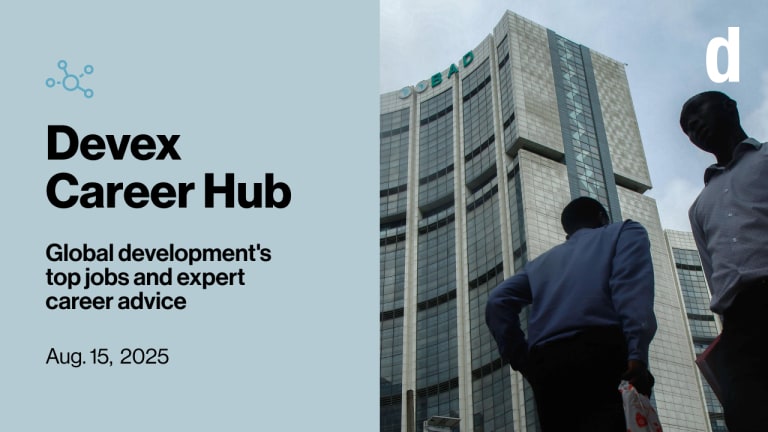For those interested in career opportunities related to sustainability, the good news is that the sector is a broad tent with “many characters and dispositions that are suited to varying roles,” according to Robert Spencer, who has spent a quarter of a century working in many aspects of sustainable development.
“To take a binary restaurant analogy, do you like being front of house, engaging with the customers, and creating an experience that they’ll remember? Or are you a creative/innovator working in the kitchen with your team of experts on the next taste sensation? I probably fall into the first category,” Spencer told Devex.
As an environmental, social, and governance, or ESG, adviser specialist, Spencer helps clients define and build their ESG goals and programs. This involves action planning and prioritizing what the key ESG issues for that organization are, thinking about how to address them, and getting buy-in from its workforce all while responding to any investor needs.








